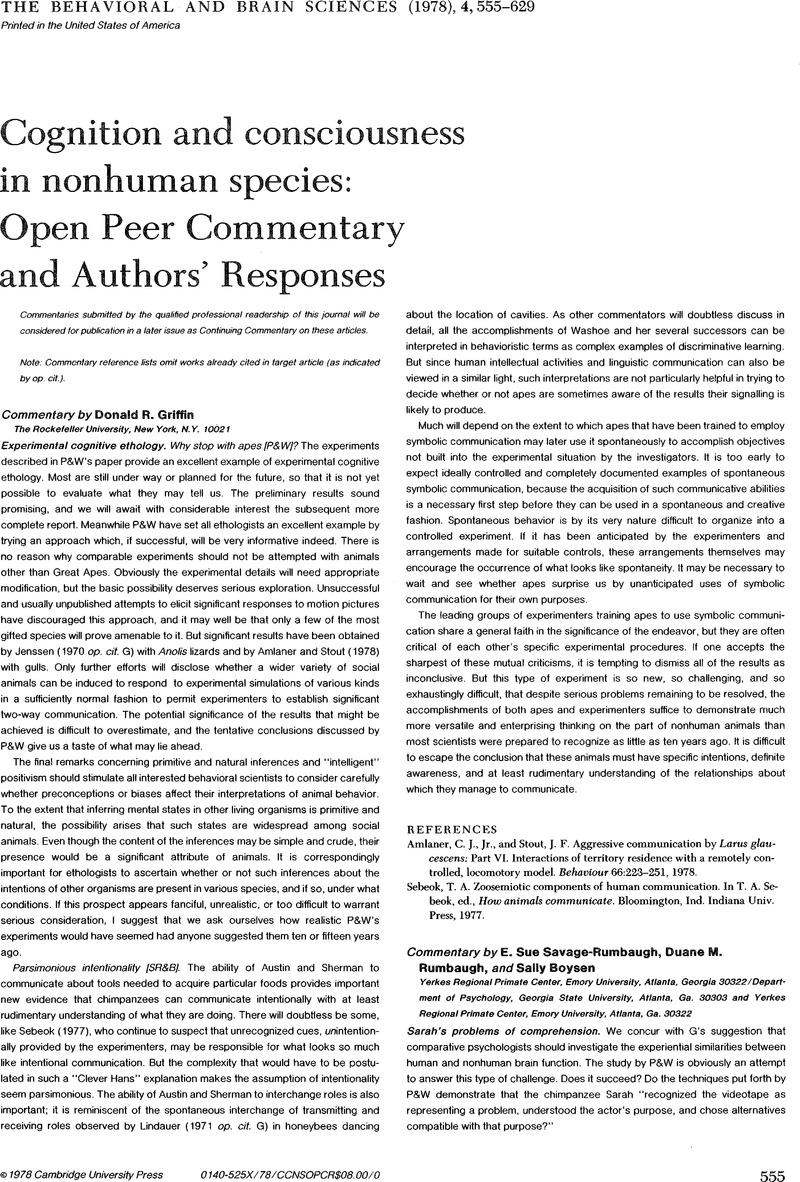No CrossRef data available.
Article contents
What does it mean to be conscious?
Published online by Cambridge University Press: 04 February 2010
Abstract
An abstract is not available for this content so a preview has been provided. Please use the Get access link above for information on how to access this content.

- Type
- Open Peer Commentary
- Information
- Behavioral and Brain Sciences , Volume 1 , Issue 4: A Special Issue on Cognition and Consiousness in Nonhuman Species , December 1978 , pp. 575 - 576
- Copyright
- Copyright © Cambridge University Press 1978
References
REFERENCES
Humphrey, N. K. The social function of intellect. In Bateson, P. and Hinde, R. A. (eds.), Growing points in ethology. Cambridge: Cambridge Univ. Pr. 1976.Google Scholar
McGrew, W. C., and Tutin, C. E. G.Evidence for a social custom in wild chimpanzees? Man 13:234–251, 1978.CrossRefGoogle Scholar
Rijksen, H. D.A field study on Sumatran Orang Utans. Wageningen: Veenman & Zonen, 1978Google Scholar
Slobodkin, L. B.Evolution is no help. World Archaeology. 8:332–343, 1977.CrossRefGoogle ScholarPubMed


